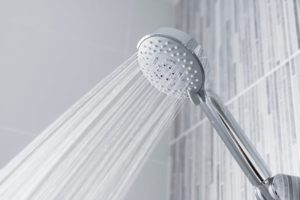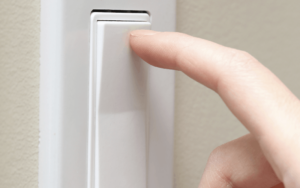Why Is My AC Leaking Water? A Florida Tech Answers
If you see water around or under your indoor AC unit, you’re probably worried about the state of your AC system.
No worries, we’re here to help resolve the problem as soon as possible.
Your AC is probably leaking because it has:
- A frozen evaporator coil
- A cracked drain pan
- A clogged condensate drain line
In this blog, we’ll explain in detail what’s causing the leak and what you can do to fix the problem.
Rather have a Florida technician repair your AC quickly?
We offer weeknight and weekend AC service in the Clearwater-St. Pete or Bradenton area.
Schedule onlineSee AC repair details
Cause #1: A frozen evaporator coil
The evaporator coil is located inside your AC’s indoor unit. It cools the air in your home by circulating a cold chemical agent called refrigerant that absorbs heat when warm air blows over the coil.
However, sometimes the evaporator coil gets too cold and ice forms on it. The following problems can cause a frozen evaporator coil:
1. A clogged air filter: If your AC filter is clogged, the dust and debris in the filter prevent your AC from sucking in enough warm air. Without enough warm air passing over the coil, it can get so cold that it freezes.
You’ll want to check if your AC filter is clogged. If it looks like the filter on the right, you need to replace it.
To make sure your AC can take in enough warm air, move all furniture or curtains that may be blocking your return vents.
3. A refrigerant leak: When there is a refrigerant leak, the amount of refrigerant decreases and the pressure in your AC drops. The lower the pressure, the colder the refrigerant gets.
If the refrigerant gets too cold, it can freeze the evaporator coil.
You should contact an HVAC technician if you suspect you have a refrigerant leak. Refrigerant is a toxic substance and is best handled by a professional.
Cause #2: A cracked drain pan
When warm air touches your cold evaporator coil, condensation forms. Then it drips down and collects in the drain pan under your evaporator coil.
Over time, as your drain pan rusts and cracks, condensate leaks out and puddles around your indoor AC unit.
Since the pan is attached to the coil, you will need to call an HVAC technician to replace the pan.
Cause #3: A clogged condensate drain line
Normally, the condensate drain line dumps any condensation your drain pan collects outside.
Over time, the drain line can become clogged with debris, which will cause the condensation to back up, overflow your drain pan and eventually spill out onto the floor around your AC unit.
To unclog your drain line, you will need a wet/dry vacuum. Seal the vacuum around the end of the drain line and turn it on to remove any trapped debris.
If the vacuum can’t remove the clog, it usually means the clog is higher up in the drain line. Contact an HVAC technician to clear the clog for you.
Need an AC repair from reliable Florida technicians?
We make it easy for you to get your AC repaired. We’re open all week long (even Sundays) and until 8pm. Get a same-day repair on all brands and models today.
You May Also Like

Why AC Tuneups Are So Beneficial to Your Comfort and Wallet
Living in Sarasota, FL, means embracing the sunshine and heat. It also means relying heavily on your air conditioner to stay comfortable.… Continue Reading Why AC Tuneups Are So Beneficial to Your Comfort and Wallet…

The Hidden Dangers of Ignoring a Shower Leak in Largo, FL
A shower leak is the last thing you want when you bathe in the morning to get you going or in the… Continue Reading The Hidden Dangers of Ignoring a Shower Leak in Largo, FL…

5 Tips for Preventing Electrical Accidents & Injuries
Electricity is ubiquitous in our day-to-day lives, making it easy to forget just how dangerous it can be. Household electrical accidents &… Continue Reading 5 Tips for Preventing Electrical Accidents & Injuries…

